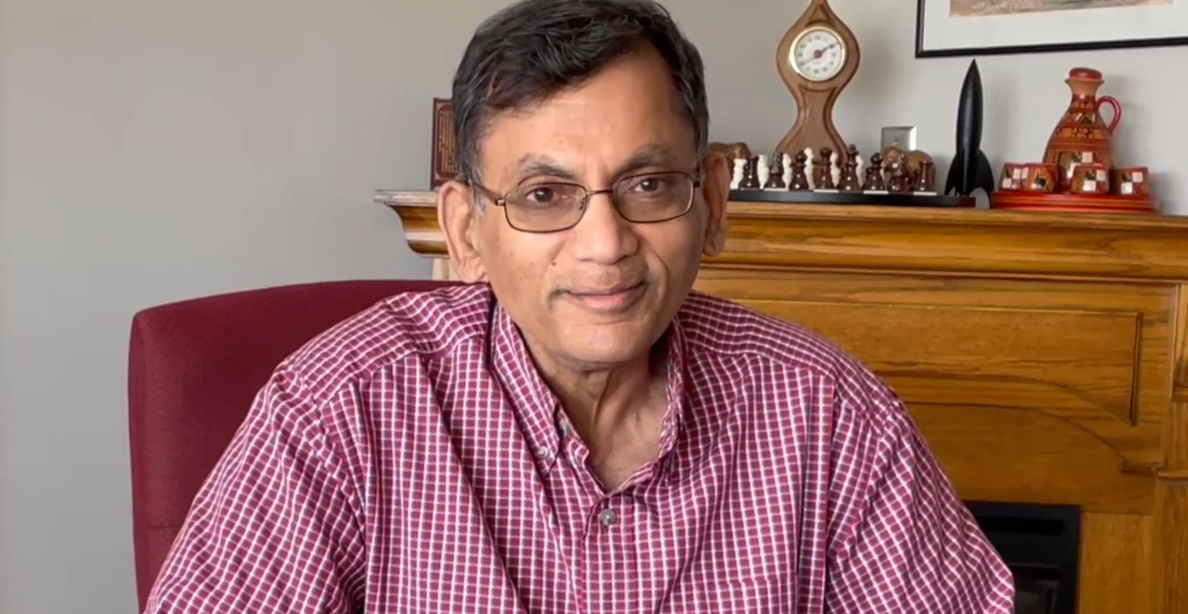A Lifetime of Achievement

A Lifetime of Achievement
As retirement approaches, University Distinguished Professor of Epidemiology and Biostatistics, Dr. Joseph Gardiner reflects on over 45 years at Michigan State University
What was your first day at MSU?
September 1, 1978. My appointment was Assistant Professor, tenure stream in College of Natural Science, Department of Statistics & Probability (STT).
Briefly explain how you ended up in our department.
Informally in early 1989, I began working with Nigel Paneth and Claudia Holzman. Over the next few years I had my percent effort increase from 50% to 75% in EPI while continuing my appointment in STT. From 2008, my appointment was 100% EPI/BIO.
"Dr. Gardiner played a central role in developing the new Program in Epidemiology. Joining the program shortly after it was established, he also developed the unit that became the Biostatistics Division of what is now the Department of Epidemiology and Biostatistics, including its research thrusts, its educational offerings and the hiring of new faculty."
Without Joseph Gardiner none of this would have happened.
As you look back what has given you the most satisfaction?
In EPI/BIO I have had a far greater involvement with research ventures with biomedical investigators. I have benefitted from these symbiotic relationships that have given both context and purpose to my own research endeavors. My methodological research has been informed by working with research scientists, which has given ‘body and soul’ to my research, instead of just playing chess with myself.
What do you consider to be your greatest achievements?
Hopefully, I have in some small, yet significant way contributed to joint ventures in research bringing both the art and science of statistics to enhance the quality of our endeavors. My longest stint of collaboration began in the mid 1990’s with Dr. Susan Schantz at the University of Illinois, Urbana-Champaign (UIUC). The studies addressed the effects on human health of environmental contaminants, received almost uninterrupted support over 20 years from ATSDR/CDC, EPA, NIEHS. Continuing on new trails is Dr. Rita Strakovsky, who joined MSU after her post-doc at UIUC. With the help of colleagues, and loads of advice from many, we were successful in recruiting Biostatistics faculty. We are growing. Festina lente.
What/who influenced you to select your area(s) of study, and how has that impacted your career?
In College, my interests were in the applications of mathematics. At that time (1968-1972) a mathematics degree covered Pure Mathematics, Applied Mathematics, and Statistics. It was a time without computers and computing facilities. Pursuing graduate work in Statistics meant to me a Brave New World for which I felt I was sufficiently prepared. I joined the program at UNC-Chapel Hill, earning a PhD in 1978.
How many students have you have mentored over the years?
All my advisees for the PhD degree were from the STT Department. I also served (and continue to serve) on PhD committees in other departments at MSU. My favorite first question to each of them was what they expected from the PhD degree. Responses varied, but after a few years the more recent students had found out the type of answer I was expecting to hear. Earning a degree is relatively short-term. What one does with it afterwards is far more important because it is for a lifetime. Many of them began their postgraduate careers in industry, or non-profit research outfits. All of them are doing exceedingly well with youthful vigor and enthusiasm.
What is the best advice you ever received?
- "If you are riding your bicycle, you cannot stop peddling." (Nigel Paneth)
- "Careers are punctuated by short-term disappointments. We must get up and move forward, and lament not on what was lost, but take strength in what was left behind." (William Wordsworth).
- "Let us run with endurance the race that is set before us." (Hebrews 12:1-2.)
I count myself fortunate to have had Joseph's kind and insightful guidance during these past 4 years as chairperson, particularly given my start during the pandemic. We all rely on Joseph's steady support. He is unfailingly polite while solving the thorniest of problems, whether statistical, educational, or political. We will miss him more than we can express!
What advice would you give to a student?
Follow your dreams, but temper your enthusiasm with caution as you face the realities of a competitive world. Being enthusiastic in your endeavors is no vice, being dogmatic is no virtue. Team Science is here to stay. Stay relevant, learn something new often.
What will you miss?
I expect to continue selected research collaborations, at least in the near term. Pre-pandemic, West Fee Hall was a home away from home.
What are your future plans?
For the next few years, my spouse and I will stay in the 48864 zip code. Downsizing and cleaning up home and office is a monumental task, often side-tracked by reading documents from years ago. Perhaps I should try removal of everything from the last century!

Send your congratulations and comments to Dr. Gardiner
Use this link to send Dr. Gardiner a note of congratulations and appreciation. All messages will be collected and delivered to Dr. Gardiner.

